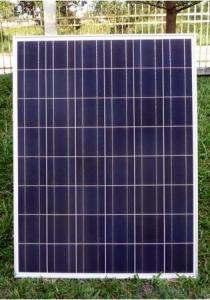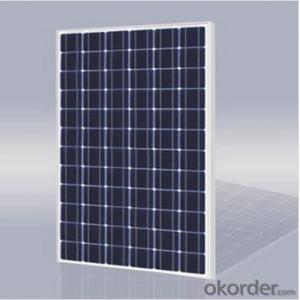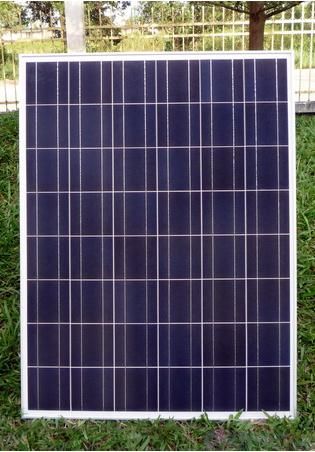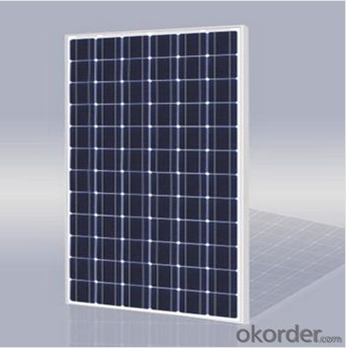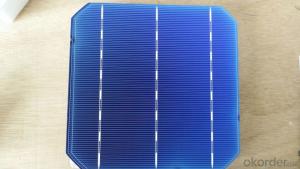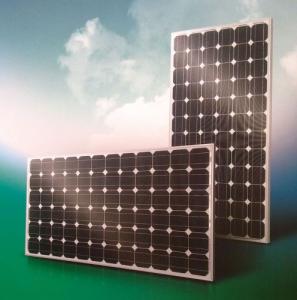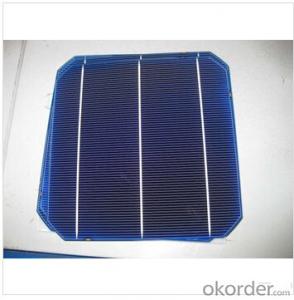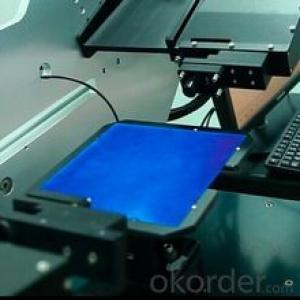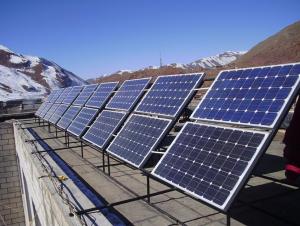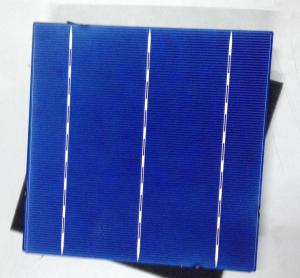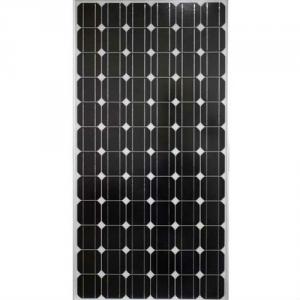New Solar Cells:156x156mm 3bb Poly Solar Cells 6x6 with Superior Quality for Solar Panel
- Loading Port:
- Shanghai
- Payment Terms:
- TT OR LC
- Min Order Qty:
- 26 watt
- Supply Capability:
- 5000 watt/month
OKorder Service Pledge
OKorder Financial Service
You Might Also Like
Specification
156x156mm 3BB Poly Solar Cells 6x6 with Sperior Quality for Solar Panel
Feature
1.High conversion efficiencies resulting in superior power output performance.
2.Outstanding power output even in low light or high temperature conditions
3.Optimized design for ease of soldering and lamination
4.Long-term stability,reliability and performance
5.Low breakage rate
6.Color uniformaity
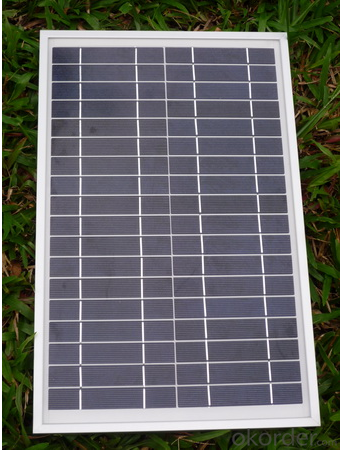
Physical characteristic
1.Precision cell efficiency sorting procedures
2.Stringent criteria for color uniformity and appearance
3.Reverse current and shunt resistance screening
4. ISO9001,ISO14001 and OHSAS 18001 etc. Certificated
Dimension: 156*156mm±0.5mm
Thickness: wafer(Si):200μm±20μm
Cell:240μm±40μm
Front: silver bus bars;dark blue/others silicon nitride anti reflection coating
Back: silver/aluminum bus bars;full-surface aluminum BSF
Warranty
25-years limited warranty on power output: 10 years/90%, 25 years/80%
Packaging
The solar cells are packed in cartons, and then pallet.
Shipping by sea or by air are both ok, it's up to customer’s choice.
We’d like to inquire the freight cost for customer after be informed exact quantity and destination address
- Q: How do people price solar cells? Is it based on a specific way of calculating the cost of solar cells?
- Mostly the cost of solar cells goes to the installation, construction and maintenance. Therefore the price would be higher than what we expected.
- Q: Can solar cells be used to power air conditioning systems?
- Yes, solar cells can be used to power air conditioning systems. However, the efficiency and capacity of the solar cells, as well as the size of the air conditioning system, need to be considered to ensure sufficient power supply.
- Q: Are solar cells weather-resistant?
- Yes, solar cells are weather-resistant. They are designed to withstand various weather conditions including rain, snow, wind, and extreme temperatures.
- Q: Can solar cells be used for powering amusement parks?
- Yes, solar cells can be used for powering amusement parks. Solar energy can be harnessed and converted into electricity, which can then be used to power various rides, attractions, and facilities within the park. By utilizing solar cells, amusement parks can reduce their reliance on traditional energy sources and reduce their carbon footprint.
- Q: What is the environmental impact of manufacturing solar cells?
- The manufacturing of solar cells has both positive and negative environmental impacts. On the positive side, solar cells generate clean and renewable energy, reducing the reliance on fossil fuels and thereby decreasing greenhouse gas emissions and air pollution. Additionally, solar cells have a long lifespan and require minimal maintenance, reducing the overall environmental impact compared to other energy sources. However, the production process of solar cells does have some negative environmental consequences. The extraction of raw materials, such as silicon and rare earth metals, can lead to habitat destruction, water pollution, and soil degradation. The manufacturing process also requires energy and water, which can contribute to carbon emissions and water scarcity if not managed efficiently. Overall, while the production of solar cells does have some environmental impacts, it is important to consider them in relation to the significant environmental benefits that solar energy provides in terms of reducing carbon emissions and mitigating climate change.
- Q: How does the size of a solar cell affect its performance?
- The size of a solar cell directly affects its performance. Generally, larger solar cells have the ability to generate more electricity compared to smaller ones. This is because larger cells have a greater surface area to capture sunlight, resulting in a higher conversion efficiency and increased power output. Additionally, larger cells are better at handling heat dissipation, which can improve their overall performance and durability.
- Q: Can solar cells be used in aviation or aerospace applications?
- Yes, solar cells can be used in aviation or aerospace applications. Solar cells are commonly used in satellites to generate electricity from sunlight. They can also be used in unmanned aerial vehicles (UAVs) or drones to power their systems and extend their flight time. Additionally, some experimental aircraft have integrated solar panels to supplement their power needs.
- Q: How do solar cells perform in areas with high levels of snowfall?
- Solar cells typically do not perform optimally in areas with high levels of snowfall. The accumulation of snow on the surface of solar panels obstructs sunlight from reaching the cells, reducing their efficiency. However, advancements in technology and the tilt angle of solar panels can help minimize this issue by allowing the snow to slide off more easily. Additionally, regular maintenance practices such as clearing the snow can help ensure better performance during snowy periods.
- Q: Can solar cells be used to power remote sensing devices?
- Yes, solar cells can be used to power remote sensing devices. Solar cells convert sunlight into electricity, which can then be used to power various electronic devices including remote sensing devices. This eliminates the need for traditional power sources or batteries, making solar cells a reliable and sustainable option for powering remote sensing devices in locations where access to electricity may be limited or impractical.
- Q: What is the window material in the solar cell? what's the effect?
- However, since the window layer is a surface layer, the surface composite is serious, so the window layer to avoid absorbing light to produce carriers, so the window layer is generally made of large band gap material, try not to absorb light.
Send your message to us
New Solar Cells:156x156mm 3bb Poly Solar Cells 6x6 with Superior Quality for Solar Panel
- Loading Port:
- Shanghai
- Payment Terms:
- TT OR LC
- Min Order Qty:
- 26 watt
- Supply Capability:
- 5000 watt/month
OKorder Service Pledge
OKorder Financial Service
Similar products
Hot products
Hot Searches
Related keywords
